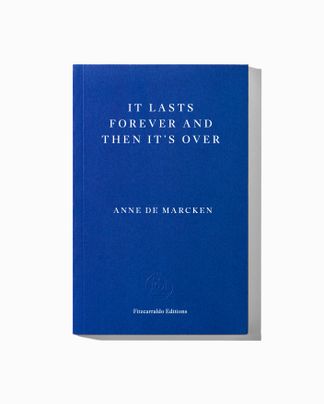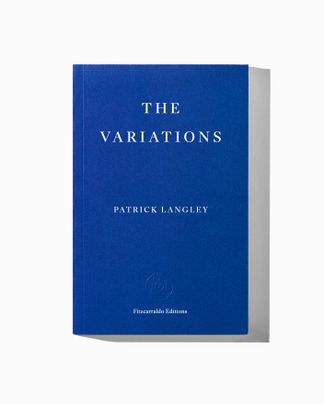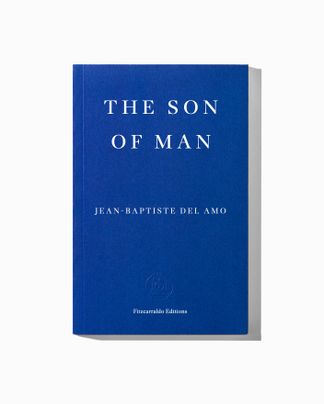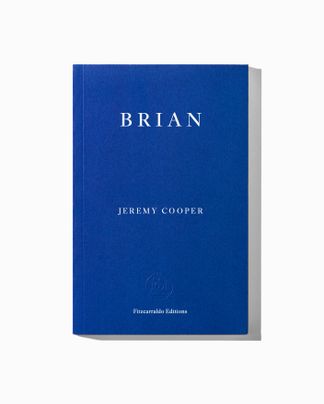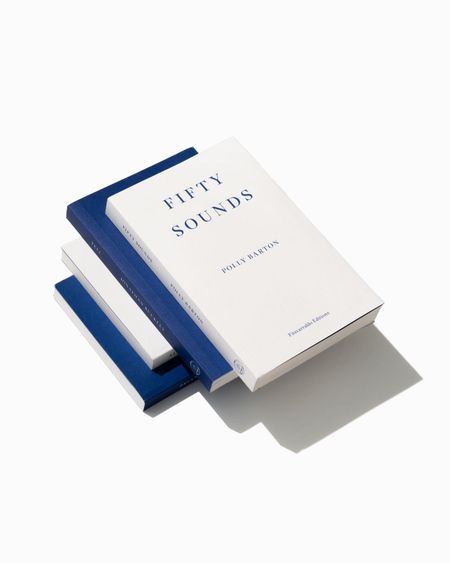Curtis Doyle, a self-made businessman and art collector, has vanished from his palatial home in the Scottish Highlands. In the wake of his disappearance, the woman who worked as his gardener is interviewed for a possible film about her employer. A work of strange and intoxicating immediacy, exploring wealth, the art world, and the intimacy and distance between social classes, Tell is a probing and complex examination of the ways in which we make stories of our own lives and of other people’s.
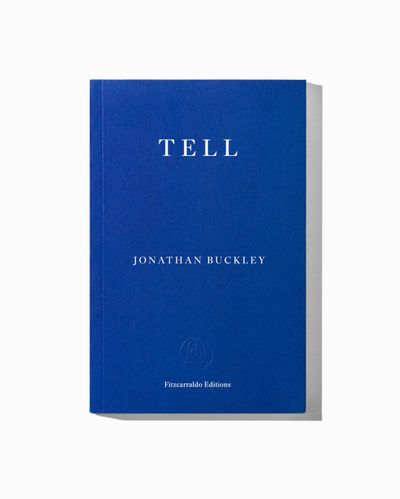
Tell
Published 28 March 2024 | French paperback with flaps, 200 pages
Shortlisted for the 2024 Goldsmiths Prize
Tell
FIRST SESSION
I can talk for as long as you like, no problem. You’ll just have to tell me when to stop. How far back do you want to take it? Because Lily is what it’s about, in my opinion. And the mother is part of the story too. Father too. Goes without saying. But maybe better to pick them up later. Shall we start with the crash? Seems an obvious place.
[Pause]
Terrible thing is, Curtis would have been on his way home the next day. He’d been gone a week, going around Vietnam and Thailand, inspecting the factories. Cambodia was the last stop, and he’d done what he needed to do there, so he decided to go to Angkor Wat. That might have been the plan all along. I don’t really know. If you’ve flown halfway round the world you can’t come back without seeing it, can you? Even if you’ve only got time to see a small part of it. You need days to explore the whole place, apparently. So he flew from the capital to this other town, right by the temples. Can’t remember the name. And that’s where the crash happened. He hired a driver to take him out to some part of the site that was fifty miles away. More or less. A good distance. They set out in the dark. That’s the thing to do – see the temples as the sun’s coming up. They were almost there when they hit a lorry, or the lorry hit them. Head-on, in the middle of the road, on a bend. I don’t think they ever worked out who was to blame. Curtis couldn’t remember anything about it. One minute he’s in the car, next thing he knows he’s in hospital with all these tubes coming out of him and his head full of staples. The driver – Curtis’s driver – was killed. Don’t know about the chap in the lorry.
[Indistinct]
Six months before we saw him again, up in Scotland. You could see he’d taken a real battering. Asil brought him up in the mighty Mercedes, the battleship. More on Asil later, and the cars. I was in the garden when the battleship came in, and Asil went round to the passenger’s side to open the door, which was unusual. With people in that world, it’s par for the course. You no longer have to trouble yourself with opening a door. Big politicians, film stars, royalty. They don’t open doors. But that wasn’t Curtis’s style. He didn’t have to make a point about his status every minute of the day. We worked for him, but we weren’t his servants, if you know what I mean. Staff is what we were. Staff and servants are not the same thing. The people I was working with in Scotland, some of the places they’d worked, what their employers really wanted were slaves. Curtis wasn’t like that.
[Pause]
Right, so Asil opened the door and gave an arm for Curtis to grab onto. And when Curtis got out, he clearly wasn’t the person he’d been before. It was obvious, within seconds. The way he looked around. It was like he was having to refamiliarize himself with the place. Fix his bearings. He could have been a patient arriving at some super-deluxe clinic. Then he noticed me, and the smile was a good sign. But all he said was ‘How are you?’ Something like that. He didn’t use my name. Before, Curtis always used your name. It was a kind of courtesy. ‘Hello Jeannie. Hello Viv.’ Some people, you could be there a year and they still wouldn’t know you from Eve. But I had the feeling that my name hadn’t occurred to him immediately. He was having to search his memory for it, and it wasn’t available. The next time I saw him, though, in the morning, he knew my name then. And he knew Rosa’s name right off. She managed the household. The chosen one. Captain of the palace.
[Inaudible]
I didn’t get to speak to him properly for a couple of days, so it was the physical changes I noticed at first. For one thing, he’d lost weight. Quite a few pounds. And the way he walked. He had a stick for a while, and he had to concentrate on where he was putting his feet. Things that should have been automatic weren’t. He was uncertain rather than unsteady, like the ground wasn’t completely even. You’d see him stumble now and then, for a few months after he came back. There were headaches as well. Terrible headaches. I mean, the scar was not small. Like a parting, all the way from front to back. He’d get these head-splitters that could go on for hours and nothing would make them go away. He’d fill a sink with iced water and keep dunking his face in it. What Rosa told me. Dizziness too. He’d be sitting down and suddenly he was bobbing around on the sea. It got him down. You could see that. Someone who’d always been on top of things, on top of everything, and then this was happening. His brain had hijacked him. That’s what he said to Rosa. Hijacked by his own brain. The worst was when he couldn’t find the right word. Not just names. Random words, simple words. He just couldn’t get hold of them sometimes. That went on for some time. And he’d get angry about it. He’d never had the longest fuse, mind you. Read any of the articles about him and they’ll say something to that effect. Lara got that right. We’ll come on to Lara in a bit. Not suffering fools gladly. That’s how they put it. Being angry with himself, though – that was new. The tiredness as well. Not the kind of tiredness you get at the end of a hard day. It was like being hit by a wave. That’s how sudden it was. It smashed him. And for a time he had this sensation of trickling water, in his head. That must have been hard to live with. As if there was cold water trickling inside his skull, like a small pipe was leaking in there. It stopped, after a year or so. But still, it would have driven me round the bend.
[Indistinct]
Same with a stroke. My grandfather, Les, he was a mild sort of chap. Never exactly Mr Sunshine, but not what you’d call a gloomy character either. A bit dull, to be honest. Took things as they came. Then he had his stroke, and from that point on he was a miserable sod. Forever complaining. Finding fault. His speech was damaged, so sometimes you didn’t know what he was moaning about. One arm was completely useless too. Some people, they come out the other side of something like that with a sense of how precious everything is. A new urgency. Engagement. They’ve come close to the edge, and they’ve been pulled back, so they start to rethink their priorities. They realize they only have one shot at life and they’d better not waste it. Seize the day and all that. That wasn’t the way Les took it. No silver linings with granddaddy’s clouds. He was always getting depressed. He felt vulnerable, like the switch might go off at any moment. It affects different people differently. It’s amazing what can happen. Weird stuff. I’m not talking about just going from cheerful to miserable or miserable to cheerful. Sometimes the brain gets completely rewired. Harry, the maintenance man, he did some reading, after what happened with Curtis. Found some weird stuff. One woman, she had an accident when she was skiing. Fell and hit her head on a rock, and she went into a coma. And when she woke up, she could speak a language she hadn’t been able to speak before. Spanish, I think it was. She must have learned some Spanish at school and the knock jogged her memory. That’s what I thought. But Harry said she’d never studied it. She knew two or three words, from cookbooks and recipes. But when she came round she could speak whole sentences. Phrases, anyway. She’d picked up a language the way you pick up a virus. I’ll ask him where he read it, then I can send you a link, if you like. We’re still in touch. I’m in touch with most of them, which tells you something, doesn’t it?
(…)
‘For the reader, it is as if we have our ear pressed against a keyhole, listening, or are flies on a wall, witnessing events that seem to portend some momentous revelation about a man. Tell is a relentlessly truthful and absorbing tale about the human condition and a searing account of the complexity of life in the modern world. Employing the simplest of narrative devices but used in the most innovative ways, Jonathan Buckley has produced a profound work of fiction.’
— Xiaolu Guo, 2024 Goldsmiths Prize Judge
‘Buckley has once again staged an absorbing debate: a philosophical refusal of narrative linearity that is replete with stories; a constellation of episodes that does not tell the whole tale.’
— Richard Robinson, Guardian
‘Buckley’s format … yields great rewards. It allows the gardener, as she tells her boss’s life story, to jump from episode to episode and character to character without the structural impositions of a conventional plot. And her voice, for the most part, is as natural and vivid as real voices are…. And, even if that story never builds to anything greater than the sum of its anecdotes, many of those anecdotes are rather wonderful: thumbnail-sketches of characters who briefly pass through, potted histories, family myths, jokes, reflections on a life lived in proximity to greatness. Tell is one of the best new novels I’ve read in a while.’
— Benjamin Markovits, Telegraph
‘Given that so many of Buckley’s novels are concerned with ideas of memory, selfhood and storytelling, this is hardly new territory for him. Yet the interview conceit in Tell makes it feel fresh, the withholding of interiority requiring an unusual engagement. Don’t take the conversational prose at face value; underneath it lies a whole other set of mysteries besides Curtis’s. Pay attention and you’ll find them.’
— George Cochrane, Financial Times
‘Always well crafted, this novel is engaging in parts and digressive in others, which adds to its realism, capturing how people chatter their way down alleys, rarely hewing to the main road of a tale…. The buildup in Tell is perpetual, a sense that an explanation must be coming. But the author diverges from expectations and converges on reality, where remembering is not the same as understanding. Abruptly, someone may just disappear, and all that remains is the sight of a figure wandering across a bridge – no splash heard, just the fading ripples of “why.”’
— Tom Rachman, New York Times
‘[T]he gardener’s voice is companionable and persuasive, and, as she speaks, the sound comes in from all around. All of this adds up to a rich and satisfying portrait … and a fascinating exploration of what it means to tell stories about our lives.’
— David Annand, Times Literary Supplement
‘Buckley … asks readers to think about how and why stories are told. This self-reflexivity results in a thought-provoking, artfully constructed narrative enriched by the mysteries that expand and proliferate throughout. It’s a deliciously fraught tour de force.’
— Publishers Weekly, starred review
‘Tell is absorbing and sweeps along, leaving gaps that are filled in later as stories overlap and the narrator’s memory of events and people moves around, following the natural ramble of conversation rather than an unfolding plot with red herrings. That this conversation feels real is a testament to Buckley’s craft, which maintains the impression of spontaneity as it moves towards a climax that is endlessly deferred.’
— Brooke Boland, Sydney Morning Herald
‘[A] riveting thriller that sweeps you in from the off…. Buckley’s prose is unpretentious and engrossing, weaving in a constant sense of foreboding that proves irresistible.’
— Martha Alexander, AnOther Magazine
‘A novel about the nature of storytelling, and who gets to tell and shape them.’
— Kirkus
‘Tell, the remarkable new novel by Jonathan Buckley … is concerned with assessment and measurement. Any sort of precision, it suggests, is fundamentally at odds with the business of storytelling…. Buckley has succeeded in developing an aesthetic of slightness: his is writing designed to slip by unobtrusively, marked by hesitations and ellipses. He gives the reader glancing versions of a character or event while questioning the possibility of telling a story at all.’
— Julia Jordan, Literary Review
Praise for Jonathan Buckley
‘Exactly why Buckley is not already revered and renowned as a novelist in the great European tradition remains a mystery that will perhaps only be addressed at that final godly hour when all the overlooked authors working in odd and antique modes will receive their just rewards.’
— Ian Sansom, Times Literary Supplement
‘Buckley’s fiction is subtle and fastidiously low-key … every apparently loose thread, when tugged, reveals itself to be woven into the themes [and] gets better the more you allow it to settle in your mind.’
— Michel Faber, Guardian
‘Few writers manage to conjure such raw unease as Jonathan Buckley … completely compelling.’
— Adrian Turpin, Financial Times
‘Why isn’t Jonathan Buckley better known? His novel of love, death and melancholy comedy, The Great Concert of the Night, is captivating.’
— John Banville
Jonathan Buckley is a writer and editor from the West Midlands, now living in Brighton. In 2015 he won the BBC National Short Story Award for ‘Briar Road’, and he is a regular contributor to the Times Literary Supplement. His previous novel, Tell, was the joint winner of the 2022 Novel Prize, a global, biennial award for a book-length work of literary fiction written in English, and was shortlisted for the 2024 Goldsmiths Prize. One Boat is his thirteenth novel, the second to come out with Fitzcarraldo Editions.

